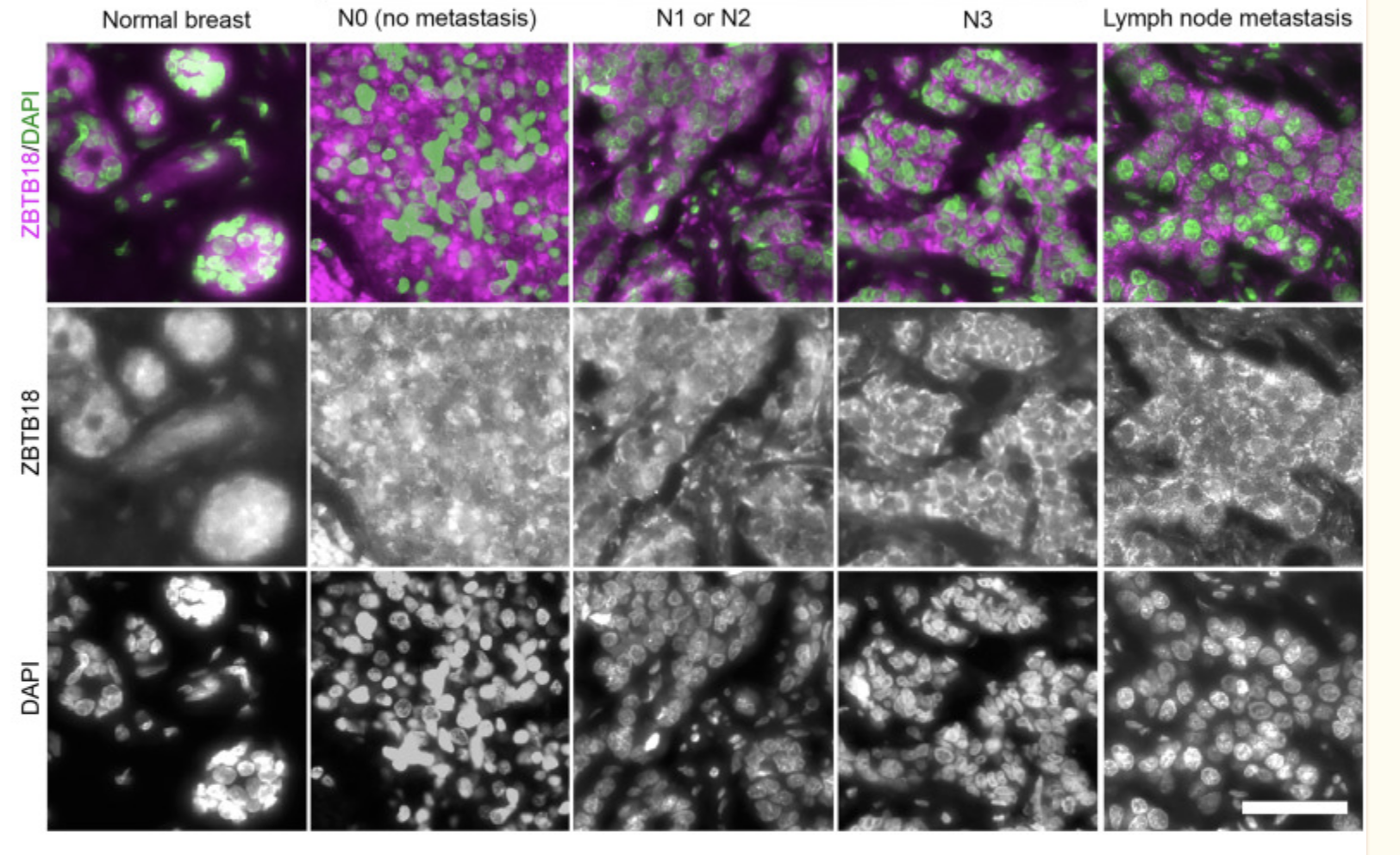Our anti-ZBTB18 helps to understand the mechanisms regulating metastasis
Article: "ZBTB18 restricts chromatin accessibility and prevents transcriptional adaptations that drive metastasis"
 Image from Wang R et al.: Representative immunostaining for ZBTB18 in samples from patients with breast cancer, stratified according to lymph node metastasis status. DAPI staining delineates cell nuclei.
Image from Wang R et al.: Representative immunostaining for ZBTB18 in samples from patients with breast cancer, stratified according to lymph node metastasis status. DAPI staining delineates cell nuclei.
Scale bar, 50 μm.
Loss of ZBTB18 promotes metastasis: this study explores the role of the transcriptional repressor ZBTB18 in metastatic mechanisms.
Metastatic cancer cells are very aggressive. However, only very few of them ultimately form clinically relevant metastases in distant tissues, mainly due to the inability to survive the immunological challenges and mechanical stresses and the hurdles of invading, surviving, and growing into the parenchyma of distant organs.
The transcriptional repressor ZBTB18 is a potent chromatin regulator involved in critical steps leading to tumorigenesis and metastasis.
Using our anti-ZBTB18 polyclonal antibody (HPA074019), this study finds that the loss of ZBTB18 activity enhances a sequence of events that promote the phenotypic changes required for metastasis.
Restoration of ZBTB18 activity (via its overexpression) reduces chromatin accessibility and consequently inhibits downstream cell motility and metastasis.
Read full article here.
👉 Find out more about our anti-ZBTB18 polyclonal antibody (HPA074019).
